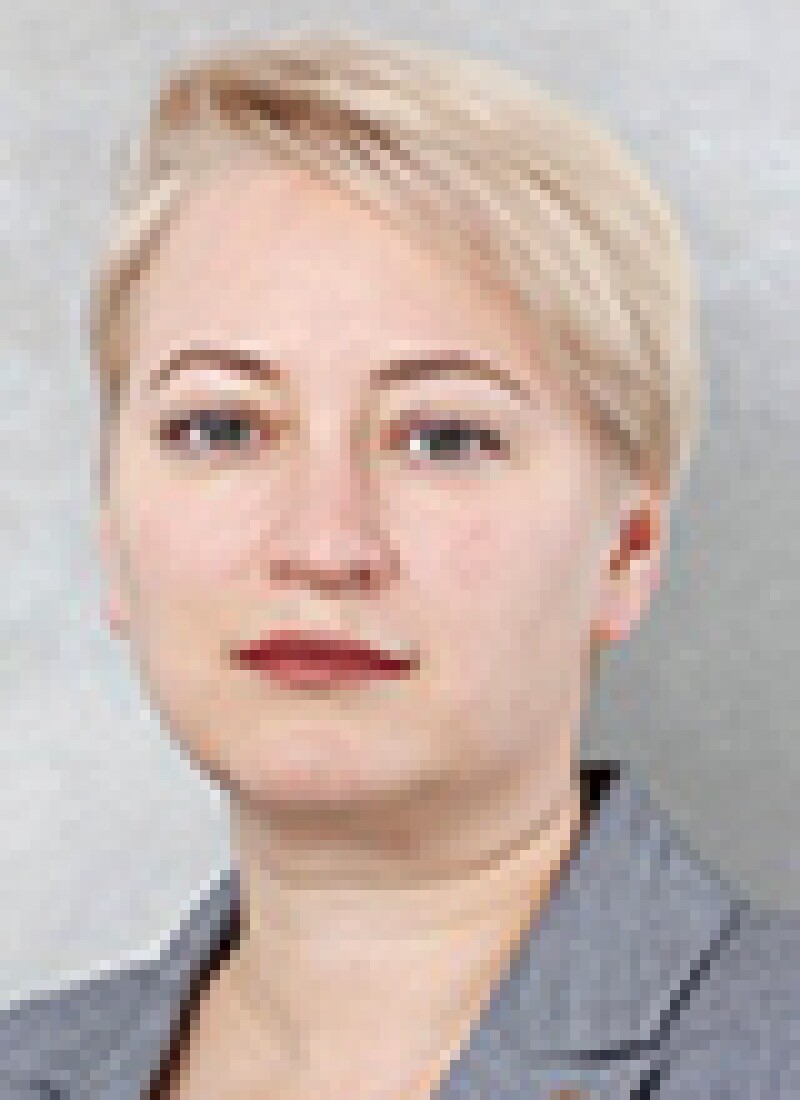
|
Commodities, intra-group services and intangibles have been earmarked as key TP focus areas by Russia |
Transfer pricing (TP) is a key topic on the agenda of any multinational business working in Russia today, and its importance is only increasing. In this article, we outline the evolution of Russia's TP framework over 20 years. We will also make an outlook to the future in order to see how the system may evolve even further.
1999-2011: Emergence
Russian TP rules were first enacted on January 1 1999 in Articles 20 and 40 of Russian Tax Code.
The legislation established the basic principles for determining market prices against which the prices used by taxpayers were compared. The rules were primarily focused on transactions with goods, works or services, and prescribed, in a very general manner, only TP pricing methods such as the comparable uncontrolled price (CUP) method, the re-sale price, and cost plus method. Furthermore, the rules allowed for a 20% deviation from the market price.
In practice, the enforcement of the rules was not effective, and tax authorities often lost cases due to a lack of necessary evidence, or breach of formal procedures for the TP method application.
2012-2018: Development
From January 1 2012, Russian TP rules aligned more closely with the OECD's TP guidelines.
At that time, non-traditional methods such as the transactional net margin method (TNMM) and the profit-split method (PSM) were introduced, together with more comprehensive comparability requirements. The abolishment of a 20% safe harbour for price deviation, and its replacement with an arm's-length range, was also then introduced. The TP documentation requirements and APAs were first introduced in 2012.
The important development at that time was a rule that only the central TP unit of the Federal Tax Service was eligible for performing TP audits across the country. The transactions controlled for TP purposes generally included:
All cross-border intra-group transactions;
Domestic intra-group transactions exceeding a certain threshold; and
Cross-border, third-party transactions, if they were undertaken either with certain types of commodities or offshore residents, subject to a certain threshold.
According to official statistics, the total number of TP audits conducted between 2012 and 2018 has not exceeded 50. Less than 40 decisions resulting from these TP audits were upheld by the Federal Tax Office. Only four of these TP cases were handled by the courts. All of these cases were focused on exports of natural resources (i.e. oil, fertilisers, and grain) through foreign trading structures. All of them were lost by taxpayers as of April 2019.
An interesting development in Russia has been in relation to those intra-group transactions which formally fall outside of scope of the TP control (e.g. domestic intra-group transactions which do not exceed the established threshold). The Supreme Court clarified that if such transactions were not priced at arm's-length, this might be an indicator of tax abuse.
In these cases, the tax authorities were allowed to audit the pricing arrangements in such transactions in order to determine whether or not the Russian General Anti-Avoidance Rules (GAAR) should apply. As a result, there have been a hundred times more disputes regarding pricing as a tax abuse rather than as a pure TP case.
A key development during this period was Russia joining the Inclusive Framework on BEPS. The biggest impact of this development on the Russian TP system was implementation of BEPS Action 13 when Russia introduced three-tier TP documentation.
These new documentation requirements apply to multinational groups with total annual revenue of at least RUB 50 billion ($768 million) for Russian parented groups, or the applicable country-by-country reporting (CbCR) threshold in their home country (for groups parented outside Russia).
Qualifying groups should prepare a local file (from 2018), a master file (for financial years starting in 2017 or later), a CbCR report (for financial years starting in 2017 or later, with an optional filing for 2016), and a CbC notification.
Another notable event for the Russian TP system was in June 2018 when the Russian Ministry of Finance issued a procedure enabling Russian legal entities to conclude bilateral or multilateral advanced pricing agreements (APAs). Previously, only unilateral APAs were available in practice. As a result, there has been an increasing interest towards bilateral APAs among Russian taxpayers. A few formal applications have been made to date.
2019: Reinforcement
As part of the ongoing TP reform, the scope of transactions (which are subject to TP control) became smaller from January 1 2019. For instance:
Cross-border intra-group transactions are now controlled only if they exceed a threshold of RUB 60 million per year; and
Domestic intra-group transactions are (to a large extent) exempt from TP control, unless they meet certain criteria (i.e. different tax rate of counterparty in a transaction). TP control in these transactions is generally aimed at preventing base erosion and profit shifting from Russia.
This change has two important implications. Firstly, there is a reduced scope of transactions that are subject to TP control. Although originally aimed at reducing the administrative burden for many taxpayers and simplifying TP administration for the tax authority, this could also mean an increased scope of transactions are now open for general anti-abuse audits where pricing is an important element.
With this in mind, many taxpayers continue documenting their domestic intra-group transactions, at least to a minimum extent, in order to be prepared for inquires around their pricing arrangements as part of a general tax audit.
Secondly, the remaining controlled transactions are seen as subject to a more robust and thorough pre-audit risk assessment on the tax authority's side. Risk based audit approaches for TP purposes is focused on areas of the highest TP risks, where common risk factors include losses, significant amounts of inter-company service fees and royalties, as well as notable changes in the tax base and deviations from industry-wide benchmarks.
As far as the enforcement practice is concerned, there is a clear trend towards an increased focus on substance, whereby a business rational for a transaction is analysed at its core, and behaviours of the parties are questioned on their consistency with those expected between third parties in comparable circumstances.
Additionally, the current TP audits show a greater reliance of the Russian tax authority on audit evidence obtained as a result of automatic exchange of information (EOI) with other tax authorities.
Russia's current TP focus
Below, we outline three topics which we identify as the current focus areas of the Russian tax authority in relation to TP.
Exports of commodities
Export transactions, especially deliveries of commodities through a foreign affiliated trader, remain an important part of Russia's TP agenda. In this situation, the Russian tax authority not only applies a detailed and thorough methodology on application of the CUP method, but also carefully analyses the whole supply chain related to the commodities, as well as the value attributed by each of the participants (particularly the foreign trading entities).
Among others, some common weaknesses identified by the tax authorities in relation to inter-company export transactions include a lack of substance at the level of the foreign group traders, application by taxpayers of the TNMM instead of the CUP method when testing the commodity prices, and deficiencies of the comparability analysis.
Intra-group services
Intra-group service arrangements have always been a point of close attention for Russia's tax authority. The main focus of the tax authority in tax audits is to prevent a mere cost allocation (cost sharing) to a Russian taxpayer, since the concept of such cost allocation or cost sharing is not accepted in Russia.
As a result, it is common to see service fees challenged for tax deduction in situations where there is: (a) no sufficient level of detail indicating that there are genuine services provided to a Russian taxpayer, (b) the taxpayer cannot demonstrate tangible documentary evidence of services and their results, or (c) it fails to prove that the services were aimed at income generation.
A number of cases where services were re-characterised into hidden dividends due to a lack of economic justification on the merits outlined above is increasing, thus requiring many multinational businesses to re-think their historic approaches to charging and documenting service fees to Russia.
Intangibles
In Russia, the tax implications of transactions involving intangibles are driven to a large extent by allocation of functions and risks (FAR) related to the intangibles within the multinational group.
The TP law does not differentiate between a legal and economic owner of intangibles, and the DEMPE functions are not yet formally embedded in the law. At the same time, the approach used by the tax authority in tax audits is in fact very close to the DEMPE analysis.
A practical implication of this approach may be a denial of royalty payments to a foreign owner of intangibles if it lacks a sufficient level of substance. It is expected that the DEMPE analysis would formally be introduced into Russian legislation from 2020.
In terms of pricing approaches, there is an increasing tendency on the tax authority's side towards less reliance on external CUPs when testing royalty transactions. Instead, there is an increasing interest on the tax administration's side in the profitability based methods, which may test the post-royalty returns of the Russian licensees.
As seen above, the complexity and the depth of the TP disputes is rising. The increased emphasis of the tax authorities in Russia, and globally on TP, is clearly leading to an increase in global TP controversy.
With this, the existence of the effective dispute resolution mechanism becomes critical, as outlined by BEPS Action 14. As part of the BEPS minimum standard implementation, the Russian Ministry of Finance has introduced the Guidance on Mutual Agreement Procedures (MAP), pursuant to the provisions of double taxation agreements (DTAs), which was released in January 2019. The objective of the guidelines is to outline the MAP processes to the interested taxpayers.
Some changes are also proposed in the law from 2020, which should regulate the TP audit as part of an ongoing MAP.
Russia's future TP landscape
It is clear that the importance of TP is increasing in Russia and the TP system is still evolving. If we are to consider possible trends which may define the future of the Russian TP system, we should expect the following:
Further implementation and enforcement of the TP related actions on the BEPS plan (possibly including BEPS 2.0 initiatives in one way or another);
Increased competency level and practical experience on the tax authority's side, also with greater industry focus;
Demand for higher transparency from multinational groups;
Increased complexity of TP audits, with a focus on shifting from commodities to other products, services and royalty, as well as an increased focus on the inbound businesses;
Demand for comprehensive TP analysis with focus on substance and value creation;
Higher reliance of the tax authority on technologies supporting them in TP administration;
An increased number of joint and simultaneous TP audits involving foreign tax authorities; and
An increased number of bilateral APAs and MAPs.
The Russian TP landscape is evolving in line with global trends and best practices. Although there are still certain specifics explained by local peculiarities, the overall magnitude of the ongoing changes is impressive, which makes the Russian TP system more integrated in the global tax landscape.
Evgenia Veter |
|
|---|---|

|
Partner, Head of Transfer Pricing and Operating Model Effectiveness, CIS Ernst & Young T: +7 495 660 4880 Evgenia Veter is a partner and head of the transfer pricing (TP) practice of EY in CIS. She has more than 20 years of professional experience in tax consulting. Her TP experience includes TP documentation and policy setting, operating model design and supply chain reorganisations, intellectual property planning, TP controversy as well as competent authority matters with focus on advance pricing agreements (APAs). Evgenia was the project lead for the World Bank and Russia's Ministry of Finance in setting up the bilateral APA program for Russia. She is recognised as a leading TP advisor for Russia by the Legal Media Group's Expert Guides. Evgenia graduated from the Finance Academy of Russia in 1996 as an economist. She holds a master's degree in economic science. |











